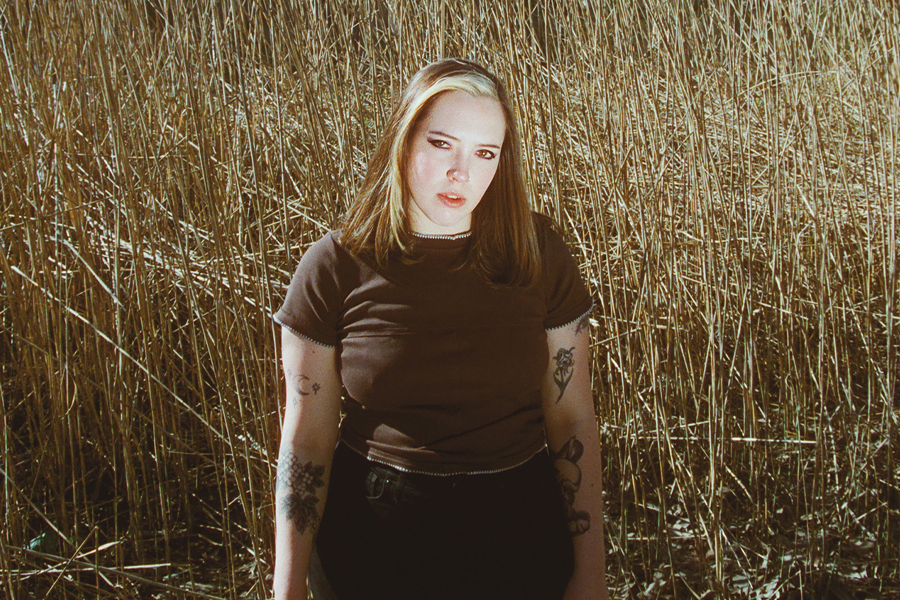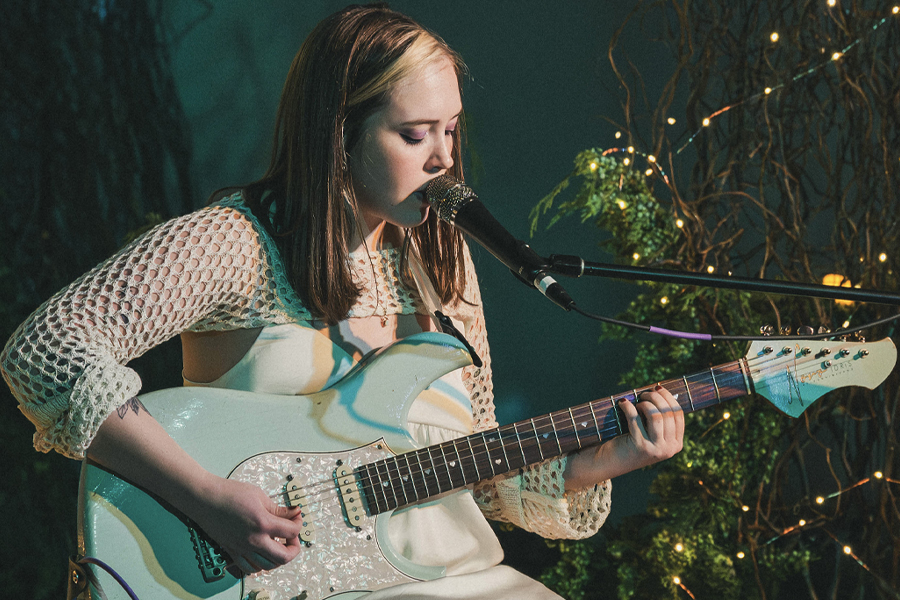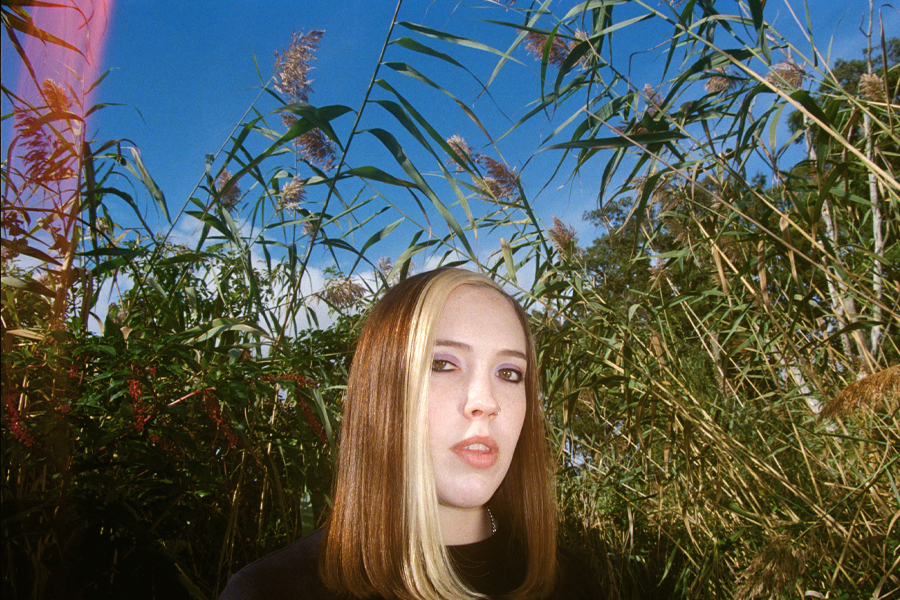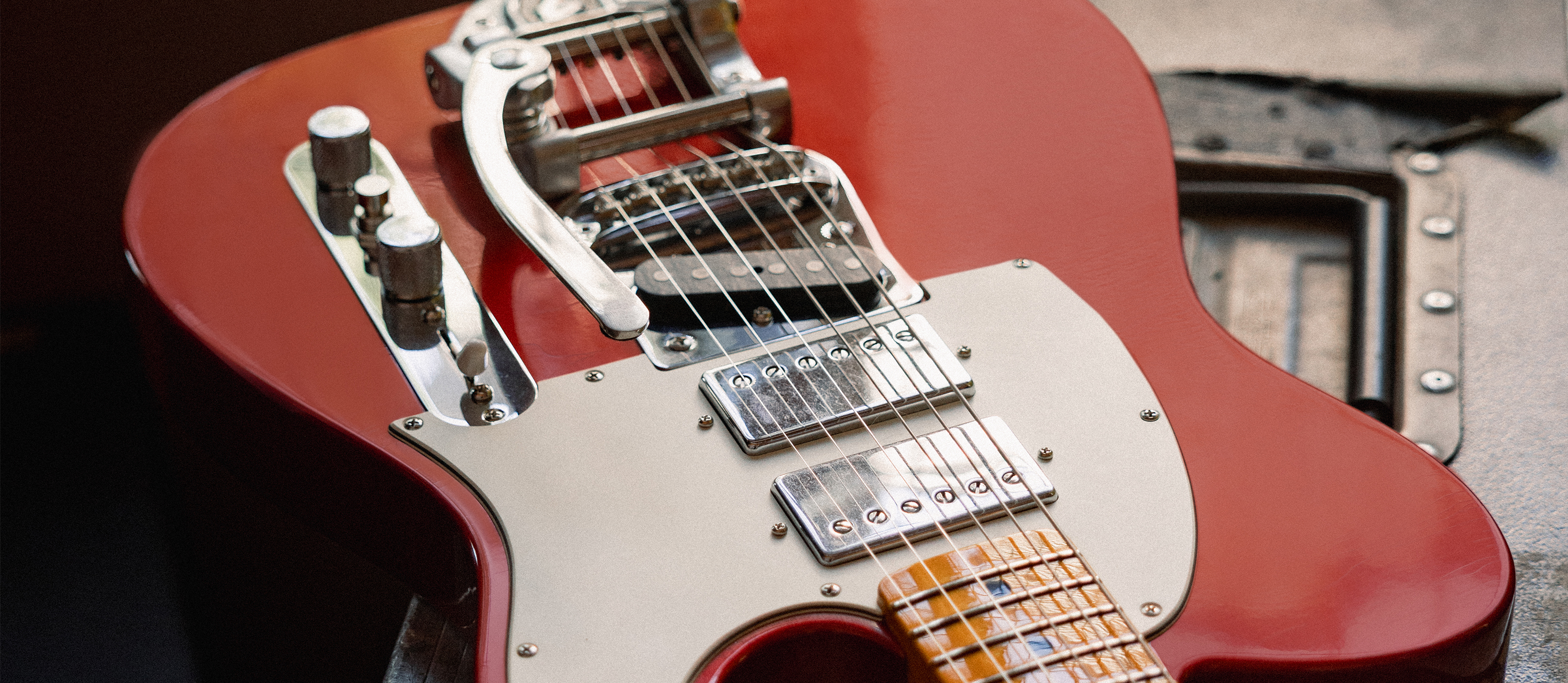“It’s all there in the music.” Sophie Allison explores a year of profound loss using Fender electrics, Gibson acoustics and fewer effects pedals on Soccer Mommy’s latest effort
The Nashville singer/songwriter also discusses the value of chord knowledge and why 20 guitars is probably too many

Sophie Allison is a darling of the indie rock scene. Her debut as Soccer Mommy — 2018’s lo-fi classic, Clean — took her from Bandcamp to the big stage in the blink of an eye. And her followups, 2020’s Color Theory and 2022’s Sometimes, Forever, upped the ante, injecting massive doses of wall-of-sound shoegazery into the mix.
But things change. People lose people. And these things impact the way we go about things—especially Sophie Allison. Though the 27-year-old Nashville singer/songwriter isn't sharing the specifics, she admits that the profound loss she experienced leading up to her latest record, 2024’s Evergreen, factored into her thinking. “It’s all there in the music,” she tells Guitar Player.
“Just like any other album that I’ve made, I do a lot of self-reflection," Allison offers. "It’s a lot of trying to manage my thoughts to get to the bottom of how I feel. It’s a balance of complicated thoughts and emotions. That’s definitely what I was trying to do, and not necessarily in a purposeful way. But it’s natural for me when I’m working through a lot of stuff.”
That loss, combined with Allison sorting through it via song, led to a clear-toned approach this time out. The walls of pedal-chain distortion heard on previous Soccer Mommy albums are barely there on Evergreen. “The album’s a bit slower too,” Allison says. “It’s just cleaner, more straightforward, less synthy, and more organic textures that fit a lot better.”
Catharsis via song has always been a thing for Allison. New cuts like “Lost,” “Salt in Wound” and “Thinking of You” show that’s not about to change, but Evergreen is nevertheless an important sign marker.
Allison agrees, though she admits she’s not sure what it means. “Right now, it’s hard to tell where I’m going to go,” she says. “I’m still in the headspace of working on this and thinking about these songs.”
“I don’t really know what’s next for me,” she admits. “Honestly, perspective-wise, it was nice to try something different. But it’s also a comfort zone and something that feels very true to myself. It’s very focused. That’s something that’s going to be good to take into whatever I do next.”

Where did you find yourself guitar-wise as you were beginning to write Evergreen?
I always write on guitar. I never write without it. It’s integral to a lot of my inspiration as far as melodies. A lot of my ideas come from chord progressions and stuff that inspires me in some way. That’s very important to me. I pretty much always write on acoustic guitar.
Why do you prefer to write on acoustic?
I occasionally write on electric, but it’s usually a little bit easier to sit around and play acoustics. That’s how I wrote and demoed most of this album. And then I’d go into the studio and find different tones and ideas. I wanted to use a lot cleaner, dreamy guitar tones, so I used a lot of Strats and Teles for a brighter, cleaner sound.
Regarding the cleaner tones, did you feel this batch of songs required that approach?
Yeah, definitely. I was definitely leaning away from the shoegazey stuff, sonically. These songs are a little more intimate. I wanted them to sit at the forefront with everything I had in the demo, right there in the center, which is usually rhythm guitar and vocals. I just thought that the cleaner tones would have a little brighter, dreamier feel.
Do you feel that writing on acoustic lent itself to how you viewed these songs?
That’s a good point. When I write on electric, there’s going to be guitar melodies that come into play more so than if I’m writing on acoustic. A lot of times, when I’m writing songs, it’s kind of just the bare minimum to get the inspiration, like, the core of the song. And then, a lot of other guitar ideas come later.
Later in the studio, or later at any time at all?
Sometimes, if I’m writing on electric, I might not even be plugged in and just sitting on my couch. Or maybe I’m sitting somewhere in a green room, playing unplugged.

Which guitar did you find yourself picking up most often while writing Evergreen?
It’s pretty much the same acoustic I play all the time: my Gibson LG-2, which is kind of old. I just love that guitar. It’s easy to play, and comfortable for me. That’s what I wrote most of the album on. But I’ve also been playing a ‘90s Fender Custom Shop Strat that I got from someone on Reverb. I was definitely playing that a lot when I was demoing and messing around with ideas at home.
My main acoustic is a ’62 LG-0; I can confirm those vintage LG series Gibsons are great guitars.
Yeah, I find them to be very playable and inspiring. They have an interesting sound that’s pretty cool. I like those slightly smaller body types because I’m pretty short, so it’s a bit easier for me to play. And they sound amazing and feel amazing.
The cleaner tones on this record are a departure for you. It seems like guitar is a vehicle for your songwriting, rather than the other way around.
For sure. It reminds me of what I was doing early on, like, before I would even call this a career. When I was just playing shows in New York or at home in Nashville, just doing it by myself, it was really about having melodies and lyrics standing out. The guitar is like an accompaniment, and having different chord voicings is what inspires me.
Once you got into the studios, what amps and pedals did you lean on most to create those voices?
There are probably less pedals than there used to be, especially for the rhythm parts. A lot of time, it was just the amp sound, with maybe some tremolo or some extra reverb. Mostly, I was playing through a Fender Twin. I really like that sound.
And I’ve been playing live with a Fender DeVille, which I really like too. They have super-great clean sounds, and sound very full, not brittle. So it was really about getting a good tone on the amp and letting that ride.
One of the songs that immediately stands out is “Lost.” There seems to be a lot of meaning behind it.
That was actually the last song I wrote for the record. It felt refreshing because, in the end, I thought I was probably done writing, and I had a lot of new thoughts on the reflections of having felt these things and said these things for myself.
I know you experienced some profound loss before this record. Was this song a way of looking back while moving forward?
I captured all these ideas and feelings and had a new perspective of something to look back at. You know — regrets, and reflections on the way that… It’s easy to forget to do and say certain things in the moment, but it’s something you think about later. I thought it was really important for me to have it on this record, just because I felt like I’d tied a lot of things together.
Is it true that you put the song “Thinking of You” together in 10 minutes?
Yeah, something like that. Probably 10 or 15 minutes. I think there were some twists on the verses in the next coming weeks, but the initial getting the idea fleshed out and down was pretty fast. A lot of lyrical ideas just flowed super easily when I was working on it.
Do your best ideas come together quickly rather than thinking too much about them?
I’ve definitely done it before. It’s not like it's that fast every time I write a song. Some songs take months to finish. There’s a lot of different ways I go about it. It just depends on inspiration. But “Thinking of You,” I wrote that really fast.
Sometimes ideas come where I’m taking them in a kind of train of thought, and it’s easy to have that spark of inspiration and get a bunch of stuff down that feels poignant. But sometimes I'm really trying to craft something that’s saying something very specific, using different metaphors or different devices to guide what I'm saying. That takes a lot more time.

If the song is more personal and requires more self-reflection, does that elongate the process?
I don’t think it’s related, honestly. Both ways take a lot of work. If you’re writing something that’s coming out all at once, it’s probably something you’ve sat with mentally for a while. That’s why you could have all these ideas that are tied together, but it’s just that spark of inspiration for putting it into a song to get the flow going.
The overall sound of Evergreen is different, but what hasn’t changed is your knack for capturing moods and vibes. What’s your secret?
Just having a vision in your mind. Particularly on this record, not putting a bunch of stuff that doesn’t need to be there and being very specific about where I wanted stuff — especially with guitars. You could put 20 layers of guitar on a recording, and it’ll feel bigger and bigger. But it might also get muddier.
And just being particular about what you actually want, and trying a lot of sounds and ideas. Not being married to your first idea and having a broader vision in your head the whole time.
Evergreen feels like an important record. There are the sonic shifts and shifts in your life leading up. What does this album mean to you?
Obviously, my favorite part of doing this whole thing is getting to record and write music. It’s always very important and inspirational to me. When I get the most excited is when I get an emotional view of being to make something out of nothing. I wanted something very decisive and didn’t want to mess around.
I wanted to come in and be very focused, which was helpful because I got a little out of my mind when it was time to do that stuff. You have a lot of ideas that you’re trying to put down in a specific amount of time, and you want to make sure you get through everything you want to do. It's very chaotic, but we kept control and headed toward the vision.
Get The Pick Newsletter
All the latest guitar news, interviews, lessons, reviews, deals and more, direct to your inbox!
Andrew Daly is an iced-coffee-addicted, oddball Telecaster-playing, alfredo pasta-loving journalist from Long Island, NY, who, in addition to being a contributing writer for Guitar World, scribes for Rock Candy, Bass Player, Total Guitar, and Classic Rock History. Andrew has interviewed favorites like Ace Frehley, Johnny Marr, Vito Bratta, Bruce Kulick, Joe Perry, Brad Whitford, Rich Robinson, and Paul Stanley, while his all-time favorite (rhythm player), Keith Richards, continues to elude him.
"The only thing missing is the noise from the tape loop." We review the Strymon EC-1 Single Head dTape Echo, a convincing take on a very special vintage tube Echoplex
A gigantic $360 off Positive Grid's celebrated BIAS amp sim software may have just put the nail in the coffin of my beloved valve combo












